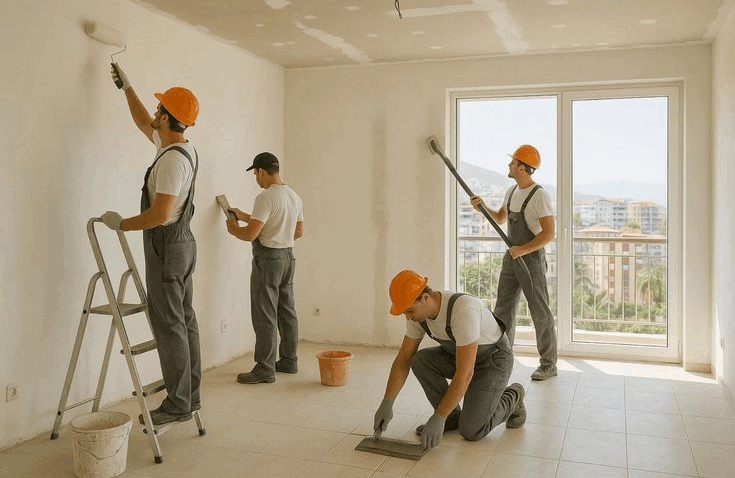
Choosing The Right Materials For Heavy Use Floors
Floors that carry heavy use demand durability and practicality. Whether it’s a bustling farm, a busy warehouse, or a family home with constant foot traffic, the choice of materials shapes performance and longevity. Selecting the right surface not only improves appearance but also saves time and money on repairs. With so many options available, it helps to understand which materials can withstand pressure while staying easy to maintain.
Benefits of Epoxy Flooring For Farms
Epoxy flooring for farms refers to a special resin-based coating applied over concrete surfaces. It creates a hard, non-porous layer that resists moisture, chemicals, and constant wear. On farms, flooring battles mud, machinery, animals, and cleaning routines. Epoxy provides a seamless surface that does not trap dirt or bacteria, making sanitation easier. Its durability also ensures that heavy equipment can move across it without leaving cracks or dents. For agricultural spaces where hygiene and toughness matter, Epoxy flooring for farms is a trusted solution.
Strength And Stability With Epoxy Floors
One of the biggest benefits of epoxy lies in its strength. The chemical bond between resin and hardener creates a surface tougher than many alternatives. It resists scratches, impact, and corrosion. In barns or milking areas, this strength reduces the need for constant patching. Farmers save on maintenance costs, while also gaining a clean and professional look. The stability of epoxy floors is especially valuable in spaces that see both animal traffic and heavy equipment, balancing function with visual appeal.
Benefits Of Vinyl Flooring Installation
Vinyl flooring installation brings a different kind of durability. Unlike epoxy, vinyl comes in planks or sheets designed for comfort and flexibility. It’s highly resistant to moisture, stains, and scratches. This makes it suitable not only for busy homes but also for offices, clinics, and commercial kitchens. Installation is relatively quick, with options that can be glued down or clicked together. Vinyl also comes in endless styles, from wood-look planks to stone-like finishes. For areas needing resilience with design freedom, vinyl flooring installation offers the best of both worlds.
Practicality Of Vinyl Flooring In Heavy Use Spaces
Beyond its style, vinyl stands out for its practicality. It’s softer underfoot than concrete or tile, reducing fatigue for people who stand for long periods. In households with children or pets, vinyl reduces noise and adds comfort. Maintenance is straightforward—regular sweeping and occasional mopping are enough to keep it looking fresh. In spaces like daycare centers, healthcare facilities, or retail stores, vinyl proves that durability does not have to come at the cost of comfort. Its versatility explains why vinyl remains a top choice for high-traffic floors.
Comparing Durability And Maintenance
When choosing between epoxy and vinyl, the decision often comes down to environment. Epoxy excels in demanding, industrial, or farm settings where strength and sanitation take priority. Vinyl shines in residential or commercial areas where comfort and style matter alongside durability. Both materials require little upkeep compared to traditional options like wood or carpet. Evaluating the specific type of heavy use a space experiences will determine which flooring performs better in the long run.
Conclusion
Selecting the right materials for heavy use floors is about balancing strength, comfort, and practicality. Epoxy works best in tough farm environments, where resistance to chemicals and machinery is crucial. Vinyl offers a stylish and versatile alternative for homes and businesses that still need resilience. By matching material to environment, property owners avoid unnecessary wear and ensure long-lasting performance.







